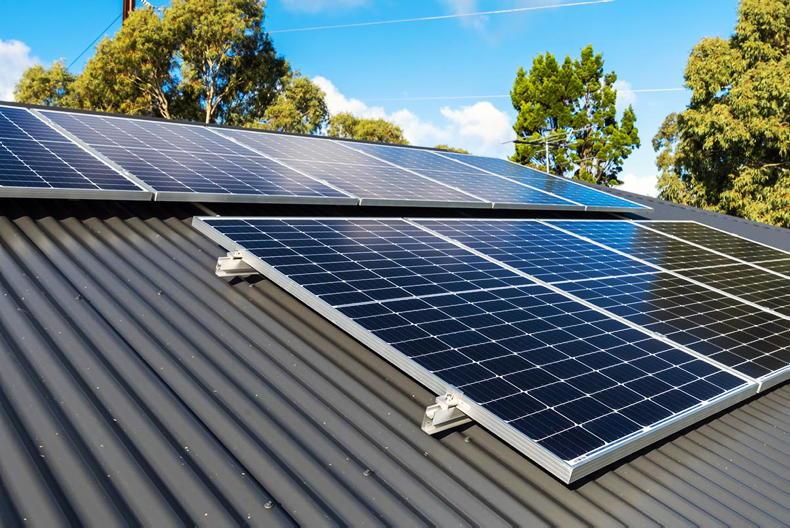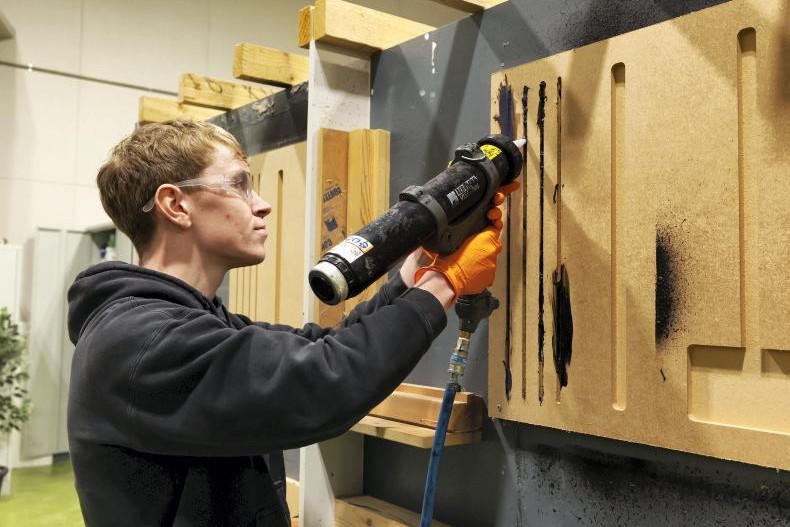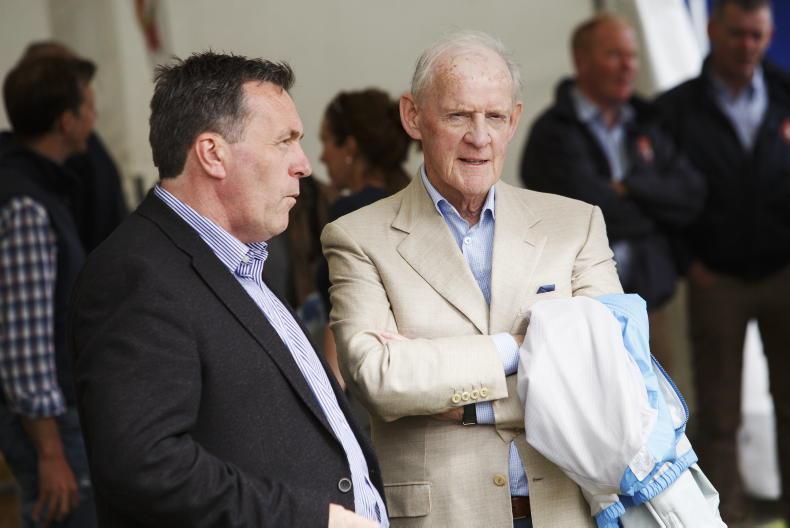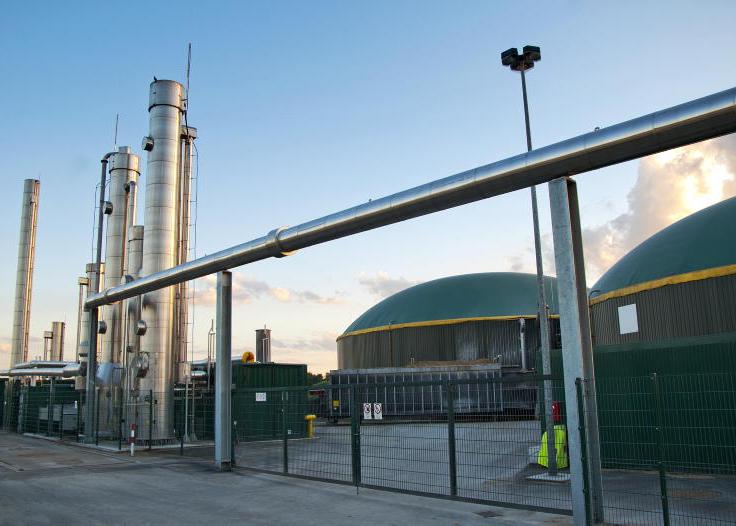Farmer investment in anaerobic digestion (AD) and solar PV won’t contribute to the 25% carbon emissions reduction target for 2030 now applied to the agriculture sector, according to officials at the Department of Environment and Climate.
While suggesting that there is more to be worked out in this regard, the officials said that such environmental measures from farmers and the emissions reduced through them will be accounted for in the energy sector’s target and Ireland’s “overall” emissions reduction target.
When asked by the Irish Farmers Journal what the incentive would then be for the farm sector to invest in renewables such as AD and solar PV, the officials from Minister for Environment Eamon Ryan’s department said that “it will be financial”.
Conflicting position
Earlier, on the ways Ag Climatise, the Department of Agriculture strategy to reduce farm emissions, will be adapted to support an emissions reduction target of 25%, rather than its current 22%, Minister for Agriculture Charlie McConalogue said: “One of the key ways in which we will be looking to do that will be farm and agriculture’s capacity to contribute to energy.
“And really importantly, it will be about providing options to farmers to do that and backing them financially with income streams in relation to how they do that too.”
Minister McConalogue’s comments differed from the later position shared by the officials from Minister Eamon Ryan’s department.
The remarks were made during a briefing on the now agreed 25% emissions reduction target for the farm sector on Thursday.
Policy will change
On the implications if agriculture does not meet the 25% target for 2030, Minister Ryan said “if we are not meeting the targets, we will change the policy”.
“One of the other ways is the climate laws in how it’s set out, is that if we are not meeting targets, we will adjust policy. This is going to have to be learning while doing and evolving and learning from other countries as well.
“The consequences first and foremost are [will be] that we have to adjust policy.
“As well as our national law and plan, we are in the European Union, which sets ourselves in this green direction and also what it does is it’s putting in real measures that countries have to abide by,” he said.
‘Decade ahead of us’
Minister McConalogue said agriculture is “setting a target now which is going to bring us up to 2030” and that "we have most of a decade ahead of us and our understanding is rapidly evolving”.
He said the climate targets applied to the farm sector will “not lose the focus in relation to food production”.
The Minister said the need to produce food is “really important too and making sure we get the right balance through that”.
“I think no more than for any sector, the objective is to do all that we can to meet them. There is an obligation on us to do that and that’s why it’s important in relation to how we do it, we have pathways that actually help us to achieve that.
“This puts in place a very clear framework that puts pressure on all of us to make sure we actually do make progress,” he said.
No losers
All ministers involved in the negotiations on agriculture’s emissions target agreed there are no losers within the coalition in landing on the 25%. Minister Ryan said he does not believe any of his Green Part TDs will lose the party whip over the target.
Minister McConalogue described reducing agriculture’s emissions as a “journey that we all have to go together”.
He said he has worked “very hard” with farm representatives and farmers across the country on “this issue” and the new Common Agriculture Policy (CAP) strategy.
“I think farmers are up for this and what they need to know is that we are going to back them and support them,” he said.
Read more
Emissions reduction target of 25% set for agriculture
Farmer investment in anaerobic digestion (AD) and solar PV won’t contribute to the 25% carbon emissions reduction target for 2030 now applied to the agriculture sector, according to officials at the Department of Environment and Climate.
While suggesting that there is more to be worked out in this regard, the officials said that such environmental measures from farmers and the emissions reduced through them will be accounted for in the energy sector’s target and Ireland’s “overall” emissions reduction target.
When asked by the Irish Farmers Journal what the incentive would then be for the farm sector to invest in renewables such as AD and solar PV, the officials from Minister for Environment Eamon Ryan’s department said that “it will be financial”.
Conflicting position
Earlier, on the ways Ag Climatise, the Department of Agriculture strategy to reduce farm emissions, will be adapted to support an emissions reduction target of 25%, rather than its current 22%, Minister for Agriculture Charlie McConalogue said: “One of the key ways in which we will be looking to do that will be farm and agriculture’s capacity to contribute to energy.
“And really importantly, it will be about providing options to farmers to do that and backing them financially with income streams in relation to how they do that too.”
Minister McConalogue’s comments differed from the later position shared by the officials from Minister Eamon Ryan’s department.
The remarks were made during a briefing on the now agreed 25% emissions reduction target for the farm sector on Thursday.
Policy will change
On the implications if agriculture does not meet the 25% target for 2030, Minister Ryan said “if we are not meeting the targets, we will change the policy”.
“One of the other ways is the climate laws in how it’s set out, is that if we are not meeting targets, we will adjust policy. This is going to have to be learning while doing and evolving and learning from other countries as well.
“The consequences first and foremost are [will be] that we have to adjust policy.
“As well as our national law and plan, we are in the European Union, which sets ourselves in this green direction and also what it does is it’s putting in real measures that countries have to abide by,” he said.
‘Decade ahead of us’
Minister McConalogue said agriculture is “setting a target now which is going to bring us up to 2030” and that "we have most of a decade ahead of us and our understanding is rapidly evolving”.
He said the climate targets applied to the farm sector will “not lose the focus in relation to food production”.
The Minister said the need to produce food is “really important too and making sure we get the right balance through that”.
“I think no more than for any sector, the objective is to do all that we can to meet them. There is an obligation on us to do that and that’s why it’s important in relation to how we do it, we have pathways that actually help us to achieve that.
“This puts in place a very clear framework that puts pressure on all of us to make sure we actually do make progress,” he said.
No losers
All ministers involved in the negotiations on agriculture’s emissions target agreed there are no losers within the coalition in landing on the 25%. Minister Ryan said he does not believe any of his Green Part TDs will lose the party whip over the target.
Minister McConalogue described reducing agriculture’s emissions as a “journey that we all have to go together”.
He said he has worked “very hard” with farm representatives and farmers across the country on “this issue” and the new Common Agriculture Policy (CAP) strategy.
“I think farmers are up for this and what they need to know is that we are going to back them and support them,” he said.
Read more
Emissions reduction target of 25% set for agriculture








SHARING OPTIONS